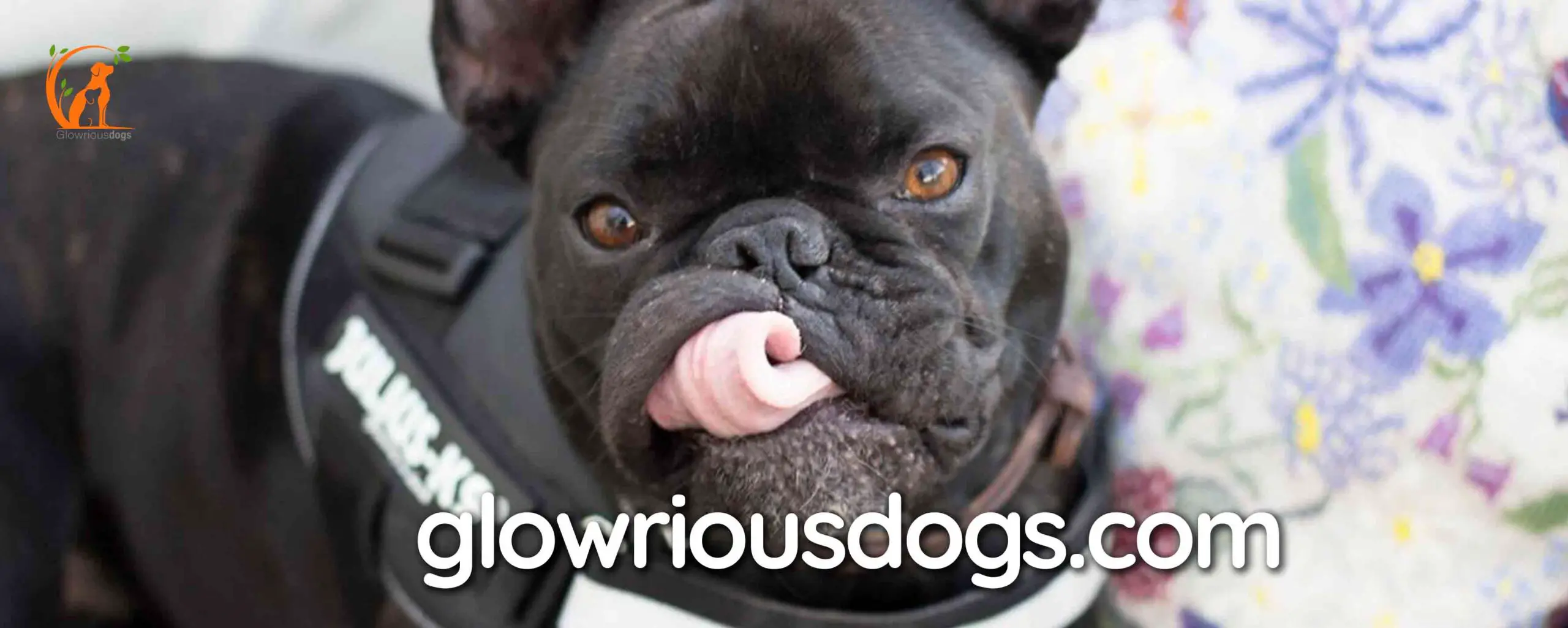If your Bulldog is out of control, it’s essential to address the issue immediately. We will explore practical tips and techniques to regain control over your Bulldog’s behavior and foster a positive relationship.
Bulldogs are known for their strong personalities and can sometimes exhibit disruptive behavior. Whether your Bulldog is jumping, barking excessively, or showing aggression, it’s important to take proactive measures to address these issues. By implementing consistent training methods, establishing boundaries, and providing mental and physical stimulation, you can help your Bulldog become a well-behaved and obedient companion.
Additionally, seeking professional guidance from a certified dog trainer or behaviorist can offer valuable insights and support in managing your Bulldog’s behavior effectively. With patience, consistency, and a commitment to positive reinforcement, you can bring your Bulldog’s behavior under control and build a harmonious life together.
Behavioral Cues That Indicate Your Bulldog Is Out Of Control
Behavioral cues that indicate your bulldog is out of control
If you’ve noticed your bulldog exhibiting destructive chewing behavior, it could be a sign that they are out of control. This can include chewing on furniture, shoes, or other household items. Excessive barking is another indication that your bulldog’s behavior is becoming unruly. Whether it’s barking at strangers passing by or barking incessantly for no apparent reason, this behavior can be disruptive and problematic. Aggressive behavior towards people or other pets is a serious red flag that your bulldog’s behavior is out of control. This can manifest as growling, snapping, or even biting. All of these signs should not be ignored and appropriate measures should be taken to address the underlying issues causing these behaviors.
Identifying The Root Causes Of The Problem
Lack of proper training and socialization, separation anxiety, and medical or health issues can all contribute to an out-of-control bulldog. Without adequate training and socialization, a bulldog may not understand how to behave in various situations, leading to unruly behavior. Separation anxiety can cause a bulldog to become anxious or distressed when left alone, resulting in destructive behavior or excessive barking. It is important to rule out any underlying medical or health issues as these can also impact a bulldog’s behavior. Consulting with a veterinarian can help provide insight into any potential medical causes.
Positive Reinforcement Training Methods
Positive reinforcement training methods are highly effective in training dogs, including bulldogs. These methods focus on reinforcing desired behaviors rather than punishing unwanted behaviors. Reward-based training is one of the key techniques employed in positive reinforcement training.
Clicker training is a popular reward-based training method that uses a clicker as a marker to identify the exact moment the desired behavior occurs. The clicker is paired with a reward, such as treats, to create a positive association with the behavior.
Using treats and praise as motivators is another important aspect of positive reinforcement training. Bulldogs, like many other dogs, respond well to rewards such as treats and praise. By associating these rewards with desired behaviors, you can motivate your bulldog to exhibit the desired behavior consistently.
Consistency And Establishing A Routine
Consistency and establishing a routine:
To manage an out-of-control Bulldog, it is essential to maintain a consistent routine. Setting clear boundaries and rules can help establish order and discipline. A structured feeding routine provides a sense of stability for your Bulldog, which can help reduce hyperactivity and erratic behavior. By feeding your Bulldog at the same time each day, you create predictability and eliminate begging behaviors. Consistency should also extend to exercise. Regular physical activity helps burn off excess energy and keeps the Bulldog engaged. Engaging in activities such as daily walks or play sessions not only provides mental stimulation but also helps to establish a routine. By incorporating these practices into your Bulldog’s daily routine, you can promote good behavior and create a calmer and more manageable environment.
Seeking Professional Help From A Dog Trainer Or Behaviorist
When dealing with an out of control Bulldog, seeking professional help from a dog trainer or behaviorist can be incredibly beneficial. These experts have the experience and knowledge to address the specific issues your dog is facing and can offer guidance on how to manage and improve their behavior. Finding a reputable and qualified trainer is crucial, as they will establish a strong foundation of trust and respect with your Bulldog. By working together, you can develop a tailored training program that focuses on positive reinforcement and establishes clear boundaries. This professional guidance can help you understand the underlying causes of your Bulldog’s behavior and provide effective strategies for addressing any problematic issues. With the help of a dog trainer or behaviorist, you can regain control of your Bulldog’s behavior and build a stronger, healthier relationship with your furry friend.
Utilizing Distractions And Redirection Techniques
One effective way to manage an out-of-control Bulldog is to utilize distractions and redirection techniques. By providing appropriate toys and interactive games, you can redirect their attention towards positive alternatives. Bulldogs are known for their energy and playfulness, so engaging them in mental stimulation activities is essential. This can include puzzle toys, treat dispensers, and interactive games that challenge their problem-solving skills. When negative behavior arises, redirecting their focus towards these activities can effectively discourage and replace unwanted actions. By consistently offering engaging and stimulating distractions, you can help keep your Bulldog’s energy directed towards positive behaviors.
Creating A Safe And Comfortable Environment
One of the first steps in managing a Bulldog that is out of control is creating a safe and comfortable environment for them. Designating a designated dog-proof area can help prevent accidents or damage to your home. This area should be equipped with appropriate toys, bedding, and water.
Using calming aids such as pheromone diffusers or calming music can also help create a soothing atmosphere for your Bulldog. Pheromone diffusers release natural chemicals that can help reduce anxiety and stress in dogs, while calming music can help create a relaxing ambiance.
It is important to ensure a consistent and predictable environment for your Bulldog. Dogs thrive on routine and knowing what to expect each day can help reduce anxiety and unwanted behaviors. Stick to a daily schedule for feeding, exercise, and playtime to help provide structure and stability for your pet.
Consistently Monitoring And Addressing Triggers
Identifying situations and stimuli that provoke the out of control behavior is crucial when it comes to managing your bulldog’s behavior. By closely observing your dog’s reactions, you can pinpoint specific triggers that lead to the inappropriate behavior. Once you have identified these triggers, it is important to take proactive measures to avoid or minimize them.
Implementing counterconditioning and desensitization techniques can be extremely helpful in gradually changing your bulldog’s response to these triggers. By gradually exposing your dog to these stimuli and pairing them with positive experiences, you can teach your dog to associate them with calmness and control.
Consistency is key when it comes to addressing these triggers. Be patient and persistent in your efforts, and over time you will see positive changes in your bulldog’s behavior.
Conclusion
Proper care and attention are crucial when it comes to bulldog eye problems. By identifying the common issues bulldogs face, such as cherry eye or dry eye, owners can take necessary steps to prevent or manage them. Regular check-ups with a veterinarian, maintaining a clean and healthy environment, and providing a well-balanced diet can all contribute to the overall eye health of Bulldogs.
Remember, a little proactive care goes a long way in ensuring the well-being and happiness of your furry friend.
Frequently Asked Questions Of My Bulldog Is Out Of Control
How Do I Get My Bulldog To Calm Down?
To calm down your bulldog, try the following tips: 1. Create a calm environment by removing any sources of excitement or stress. 2. Provide regular exercise and mental stimulation to release excess energy. 3. Use positive reinforcement training techniques to teach your bulldog to relax on command.4. Consider using calming aids like music, essential oils, or anxiety wraps. 5. Consult with a veterinarian for additional guidance or medication options if necessary.
What To Do With An Uncontrollable Dog?
If you have an uncontrollable dog, consult a professional dog trainer for assistance. They can help train your dog to behave appropriately and address any behavioral issues.
Do Bulldogs Have Behavior Problems?
Yes, Bulldogs can have behavior problems. Common issues include aggression, stubbornness, and separation anxiety. Regular training and socialization can help address these problems. It is important to provide them with consistent guidance, exercise, and mental stimulation to ensure a well-behaved and happy Bulldog.
Why Is My Bulldog Acting Aggressive?
Bulldogs can act aggressive due to various reasons like fear, pain, possessiveness, or a lack of socialization. Consulting a professional dog trainer or veterinarian can help identify the underlying cause and provide appropriate guidance and solutions for your bulldog’s aggression.











